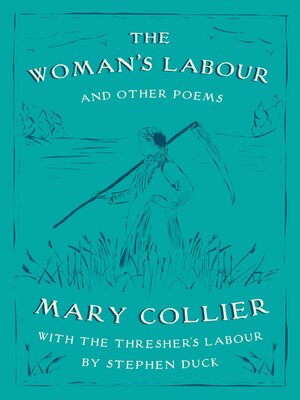
Sign up to save your library
With an OverDrive account, you can save your favorite libraries for at-a-glance information about availability. Find out more about OverDrive accounts.
Find this title in Libby, the library reading app by OverDrive.



Search for a digital library with this title
Title found at these libraries:
| Library Name | Distance |
|---|---|
| Loading... |
Eighteenth-century poetry was dominated by men of education and wealth, and bookcases sagged under the weight of volumes by Swift, Johnson and Pope. When Stephen Duck's The Thresher's Labour was published in 1730, however, it was a sensation – highlighting the plight of the working class in verse was hereto simply unthought of. Duck's poem came to the attention of Mary Collier, a washerwoman working in Hampshire, who was astounded to read Duck's dismissal of women as work-shy layabouts who indulged in 'noisy prattle', and she penned a stinging riposte, The Woman's Labour, which reframed Duck's relation of harvest-time toil from a woman's perspective.
This edition of The Woman's Labour seeks to give a wider view of the conversation, and includes The Thresher's Labour, 'The Three Wise Sentences' (which Collier included in the first publication of her reply), 'An Epistolary Answer to an Exciseman Who Doubted Her Being the Author' and the elegy she wrote for Stephen Duck after he died.







